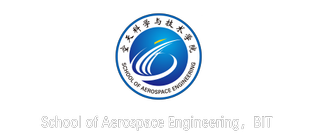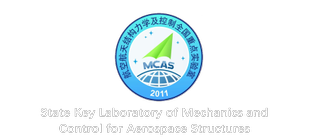高超音速流中双楔形翼段的颤振分析及PID控制
冯军楠,王立峰
摘要:在高超音速流中,气动力和惯性力的耦合作用可能导致机翼发生颤振。应用三阶活塞理论计算非定常气动力,建立双楔形翼段的运动微分方程;并采用Runge—Kutta法求解翼段的运动微分方程,得到翼段的时间历程及相轨迹线。设计一种PID控制器,可以通过改变控制面角度来抑制翼段的颤振运动。结果表明,PID控制能够有效地抑制机翼的颤振,使系统运动迅速趋于稳定。
关键词:双楔形翼段;颤振;活塞理论;Runge—Kutta法;PID控制
FlutterAnalysis and PID Control of Double-wedge Airfoil in Hypersonic Flow
Junnan Feng, Lifeng Wang
Abstract:In hypersonic flow, coupling between aerodynamic and inertial force may make the airfoil flutter. The third order piston theory is used to estimate the unsteady aerodynamic loads to establish differential equations of the double-wedge airfoil. It is solved based on the Runge-Kutta method to get time history and phase trajectories of system. PID controller is designed to suppress the flutter of the airfoil by changing the angle of control surface. The results show that PID controller can effectively suppress the airfoil flutter and stablized system quickly.
Keyword:double-wedge airfoil; flutter; the third order piston theory; Runge-Kutta method; PID control
原文链接:http://www.cnki.com.cn/Article/CJFDTotal-KXJS201414058.htm





